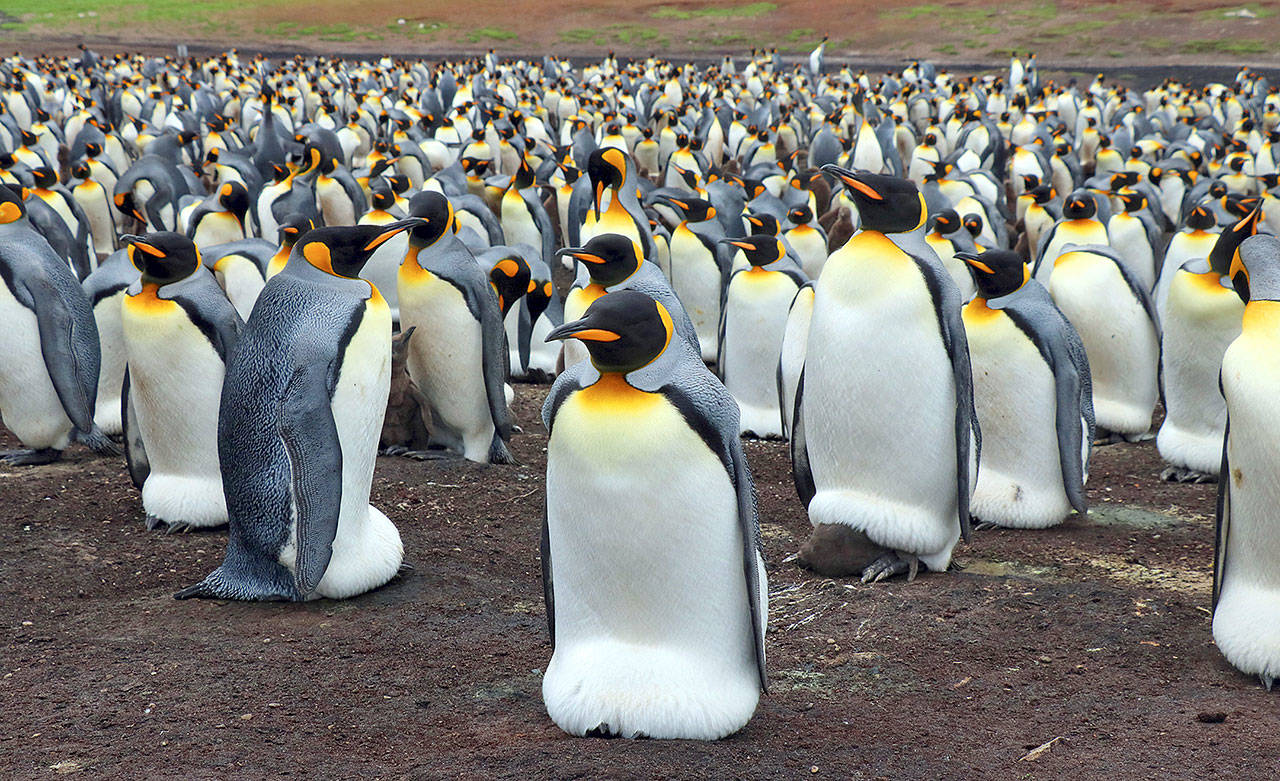By Subel Bhandari
McClatchy News Service
SYDNEY — Rising temperatures due to climate change could push Antarctica’s king penguin populations to the brink of extinction, according to a new study published on Tuesday.
The study, published in the journal Nature Climate Change, predicted that under a “business-as-usual” scenario, 70 percent of today’s 1.1 million king penguin breeding pairs would abruptly relocate or disappear before the end of the century.
Flightless king penguins are the second largest species of penguin, after the emperor.
They breed only on specific isolated islands — with no ice cover and easy access to the sea — in the Southern Ocean and can make round trips of more than 370 miles hunting for fish and krill in the Antarctic waters, while their chicks fast for up to a week at a time.
With warming oceans, the Antarctic polar front — a nutrient-rich upwelling that occurs where cold, deep seas mix with temperate seas and supports a huge amount of marine life — is being pushed further south.
That means the adults have to travel farther away from their nests to look for food, leaving their offspring hungry for longer.
“They will need to either move somewhere else or they will just disappear,” said Emiliano Trucchi, one of the paper’s authors and an evolutionary biologist at the University of Ferrara in Italy.
“The largest colonies are on islands that will be too far from the source of food,” said Trucchi.
Unlike emperor penguins, the kings cannot nest on ice.
“There are still some islands further south where king penguins may retreat but the competition for breeding sites and food will be harsh, especially with other species like the chinstrap, gentoo or Adelie penguins, even without the fisheries,” Celine Le Bohec, a co-author of the study, said.
“It is difficult to predict the outcome, but there will surely be losses on the way — if we are to save anything, proactive and efficient conservation efforts but above all coordinated global action against global warming should start now.”
She said the plight of the king penguin should be a warning about the future of the Antarctic’s entire marine environment.
“Penguins, like other seabirds and marine mammals, occupy higher trophic levels in the ecosystems: they are what we call bio-indicators of their ecosystems,” said Le Bohec, a population ecologist at the University of Strasbourg.
“Thus, penguins, as sensitive indicators of changes in marine ecosystems, are key species for understanding and predicting impacts of global change on the marine biome, and on polar regions for species living in sub-Antarctic and Antarctic areas.”
Earlier this month, another study found that industrial-scale fishing and climate change combined is threatening the krill population in Antarctic waters, which will have a potentially disastrous impact on many marine animals, including penguins.
Scientists and environmental activists have been pushing for the creation of a large marine protection area in the Antarctic, originally proposed by Germany and now backed by the European Union.
If successful, the 1.1 million-square-mile fishing-free zone, the world’s largest sanctuary areawise, would ban all fishing and protect species, such as penguins, leopard seals and whales.
It goes before the Antarctic decision-making body Convention for the Conservation of Antarctic Marine Living Resources in October.


